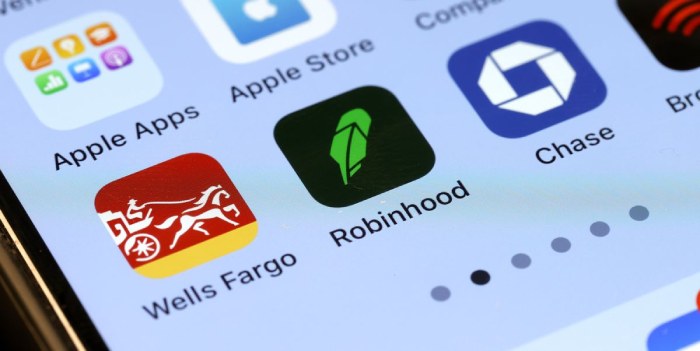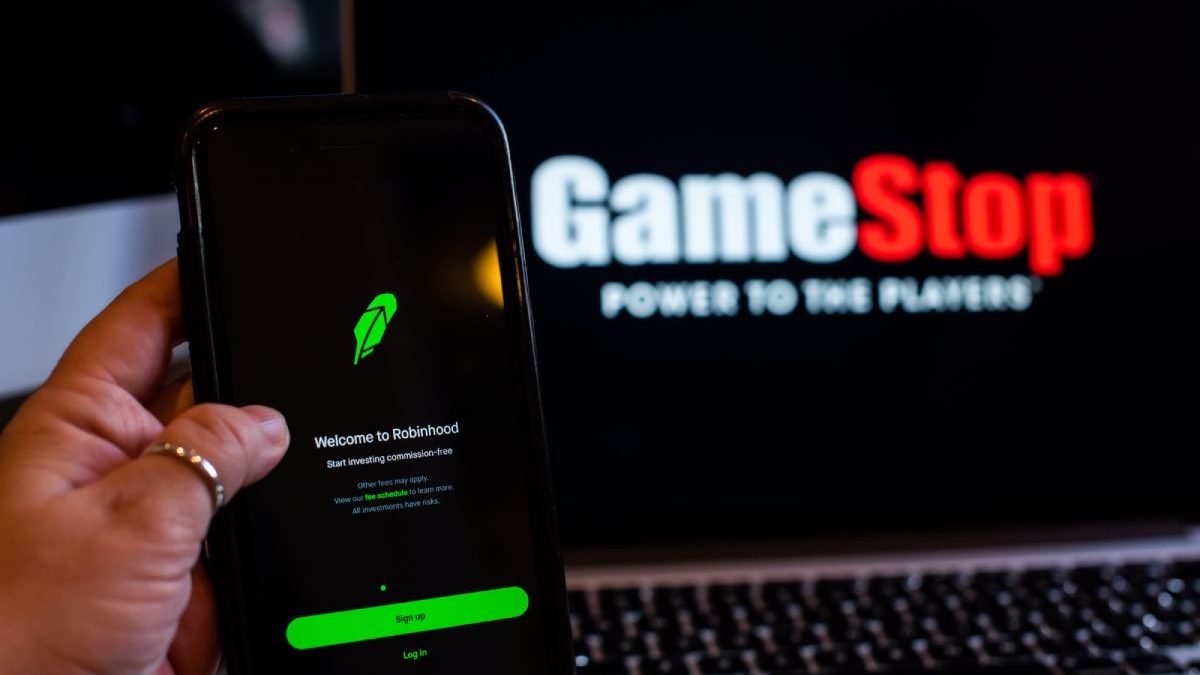Retail brokers on Thursday restricted trading in GameStop and other stocks caught in a frenzy that has captivated Wall Street and brought big losses to hedge funds.
Free-stock trading pioneer Robinhood and Interactive Brokers said that in some cases investors can only sell their positions and not open new ones. Both brokerages increased margin requirements for certain securities.
Robinhood told its customers in a blog post that it would automatically close some positions if there was a risk that the customer needed the required collateral. The Menlo Park-based company, CA, said it planned to allow limited purchases of those securities on Friday.
Following the announcement, GameStop shares initially gave back their gains and quickly slid into negative territory. The stock, which traded above $500 at one point in premarket trading, closed down 44% Thursday.
In addition to GameStop, the wild trading also affected other heavily shorted stocks, including AMC Entertainment
blackBerry and Koss
“We continuously monitor the markets and make changes as needed. Given the recent volatility, we are limiting transactions for certain securities to position closures only, including $AAL, $AMC, $BB, $BBBY, $CTRM, $EXPR, $GME, $KOSS, $NAKD, $NOK, $SNDL, $TR and $TRVG. We have also increased margin requirements for certain securities,” Robinhood said in a statement.
Table of Contents
Pushback Against Wall Street
The Reddit crew has banded together to buy certain stocks in what some call a counter-movement to the Wall Street establishment.
Hedge fund Melvin Capital closed its short position in GameStop on Tuesday after being targeted by an army of small investors for big losses.
Citadel and Point72 have poured nearly $3 billion into Gabe Plotkin’s hedge fund to boost its finances.
“This is a big problem that the e-brokers themselves have caused because they are so beholden to their principals who pay for order flow, and it shows the real vulnerability of the no-commission business model,” said Timothy Welsh, founder and CEO of wealth management advisory firm Nexus Strategy.
Taking payments for order flow from Wall Street firms is a controversial but legal practice used by most electronic brokers. For Robinhood, it’s the largest source of revenue.
There has been some speculation that other firms have pressured brokers to stop trading certain stocks.
Robinhood/Gamestop/Citadel

The rapid trading of GameStop, AMC, Bed Bath & Beyond, and other “meme stocks” in early 2021 led to extensive media coverage, congressional hearings, and international attention.
The events raised critical questions about the fairness of our markets, the treatment of retail investors, the “gamification” of trading, the role of certain trading strategies, conflicts of interest, interconnectedness, and so-called “payment for order flow” (PFOF).
For this reason, Better Markets has provided insights into the genesis of these events, the key players, and many of the issues, terms, and activities relevant to these events since the beginning of the GameStop craze.
Below is a list and link to some of the work and information Better Markets has compiled since the madness erupted in January 2021.
SEC Activities Related to Protecting Retail Investors
Nearly two years after the furor, the website SEC proposed a series of reforms that could benefit investors by improving how securities transactions are settled and executed.
These proposals are potentially critical steps to fix the problems that arose in January 2021 and make the markets fairer for retail investors.
The comment period on these proposals is currently underway, and it is critical that concerned citizens comment on changes that could have a huge impact on retail investors.
A Real Robinhood on Wall Street is Needed to Democratize Equity Markets Without Exploitation
At the center of the GameStop hype was an online retail broker called Robinhood Securities, which had a nifty mobile app used by many young, new retailers, almost all of whom were trading for the first time.
Robinhood played a major role in the GameStop frenzy, and Better Markets has openly addressed Robinhood’s unfair, manipulative, and dangerous practices.
The Better Markets team authored an article in the Western New England Law Review titled “Democratizing Equity Markets With And Without Exploitation: Robinhood, Gamestop, Hedge Funds, Gamification, High-Frequency Trading, And More”
The authors argue that Wall Street and finance in general can and should be democratize, but the Robinhood model, based on maximizing frequent high-risk trading encouraged by predatory gamification apps to generate as much PFOF as possible, is not the right one.
These exploitative practices enrich Wall Street at the expense of Main Street and often those who can least afford the losses.
SEC Activities Related to Protecting Retail Investors
In order to gather information and consider a proposal for rules to protect retail investors, the SEC has issued a request for information (RFI) on so-called digital engagement practices, commonly referred to as “gamification”
Many submitted comments, including Better Markets (read ours here), and we look forward to the SEC proposing rules based on this RFI and the other work of the SEC.
Conclusion
Robinhood and Interactive Brokers are the latest platforms to restrict trading in several heavily shorted stocks after retail investors and day traders unleashed a relentless trading frenzy.
Robinhood said in a blog post that it restricts transactions for certain securities to close out positions, including GameStop. AMC Entertainment, Blackberry and Bed Bath and Beyond, among others. However, robinhood has also increased margin requirements for certain securities.

